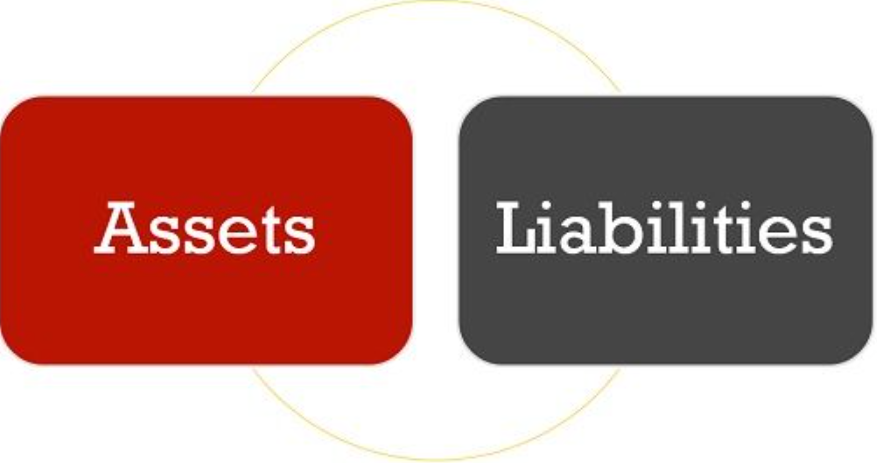In this article, we will delve into the valuable insights shared by Robert Kiyosaki and his daughter, Alexa, about the fundamental concepts of assets and liabilities. Robert Kiyosaki, the renowned financial guru, and author of “Rich Dad Poor Dad” and his daughter, Alexa, discuss the crucial lessons regarding millennials and money. One of the key takeaways is learning how to convert a liability into an asset, which is essential for financial success.
Understanding Assets and Liabilities
When you read “Rich Dad Poor Dad” one of the pivotal lessons is that your house is not necessarily an asset. While many people consider their home an asset, Kiyosaki challenges this perception. He emphasizes that whether something is an asset or a liability depends on how it impacts your cash flow.
Robert Kiyosaki outlines six fundamental financial words that are crucial for financial literacy and education:
- Income
- Expense
- Asset
- Liability
- Cash Flow
The secret to building wealth isn’t solely a college education; it’s your ability to control cash flow effectively.
Cash Flow Patterns
To understand the concept better, let’s examine cash flow patterns:
- Poor Person’s Cash Flow: For most individuals, income flows in and out primarily through expenses, with taxes being the first major expense. This pattern indicates a lack of control over cash flow.
- Middle-Class Person’s Cash Flow: Middle-class individuals often make the mistake of believing that purchasing a larger house is an asset. However, this decision typically results in money flowing out through mortgage payments, taxes, and upkeep. In reality, it’s a liability, not an asset.
Converting Your House into an Asset
If you want to turn your house into an asset, it’s essential to focus on cash flow. When Robert Kiyosaki bought his first property at the age of 25, he didn’t live in it; he rented it out, generating positive cash flow. Therefore, the key to transforming a property into an asset is ensuring that it puts money into your pocket instead of taking money out.
The Role of Financial Intelligence
Financial intelligence revolves around your ability to control cash flow effectively. This is a crucial skill that traditional education often neglects. While a college degree is valuable, it won’t necessarily teach you how to manage your finances. The Cash Flow game, designed by Robert Kiyosaki, is an excellent tool to train yourself in this essential skill.
Human Assets and Liabilities
People can also be categorized as assets or liabilities. For instance:
- Children: While having children is a joy, it’s essential to realize that they come with financial responsibilities. Children are typically considered liabilities as they incur expenses that grow as they get older, such as education and healthcare.
- Aging Family Members: As people age, they can become financial liabilities, especially if they require expensive long-term care. This often falls on the shoulders of financially stable family members.
- Financial Advisors and Partners: Bad financial advice or partnerships with unscrupulous individuals can also turn people into liabilities.
Retirement Funds and Investments
Traditional retirement funds like 401(k)s, IRAs, and pensions are not always assets. They can be considered liabilities if they primarily result in cash flowing out of your accounts, with no guarantee of future benefits.
Conclusion
Convert liability into an asset involves a deep understanding of cash flow and financial intelligence. To succeed financially, it’s crucial to control your cash flow effectively and distinguish between assets and liabilities accurately. This knowledge empowers you to make informed decisions about your investments, real estate, and even your family’s financial future. By mastering these concepts, you can take charge of your financial destiny and achieve long-term prosperity.
Remember the six essential words: Income, Expense, Asset, Liability, and Cash Flow. These words encapsulate the core principles of financial literacy and are the keys to building wealth and financial security.
Frequently Asked Questions (FAQs)
What is the difference between assets and liabilities?
Assets are items or investments that put money into your pocket, such as rental properties or dividend-yielding stocks. Liabilities, on the other hand, are expenses or items that take money out of your pocket, like mortgage payments or credit card debt.
How can I turn my house into an asset?
To turn your house into an asset, consider renting it out. If the rental income exceeds your mortgage, taxes, and maintenance costs, it becomes a source of positive cash flow, making it an asset.
Is it essential to control cash flow to build wealth?
Yes, controlling cash flow is a fundamental aspect of building wealth. Financial intelligence is not just about earning a high income; it’s about effectively managing the money that flows in and out of your life to create financial stability and prosperity.
Are children considered liabilities?
While children are a joy and a source of love and happiness, they also come with financial responsibilities. Expenses related to raising children, such as education, healthcare, and daily care, can be considered financial liabilities.
How can I prepare for the financial responsibilities of aging family members?
To prepare for the financial responsibilities of aging family members, consider setting up savings or investment accounts specifically designated for their care. Additionally, explore long-term care insurance options to help cover the costs.
Are traditional retirement funds like 401(k)s always assets?
Traditional retirement funds like 401(k)s can be assets if they result in positive cash flow through investments. However, they can also be considered liabilities if they primarily result in cash flowing out with no guarantee of future benefits.
How can I improve my financial intelligence?
Improving financial intelligence involves educating yourself about personal finance, budgeting, investing, and understanding the difference between assets and liabilities. You can also consider financial literacy courses or books to enhance your knowledge.
What are the essential words to remember for financial intelligence?
The six essential words for financial intelligence are Income, Expense, Asset, Liability, and Cash Flow. These words encompass the core principles of managing your finances effectively and building wealth over time.






